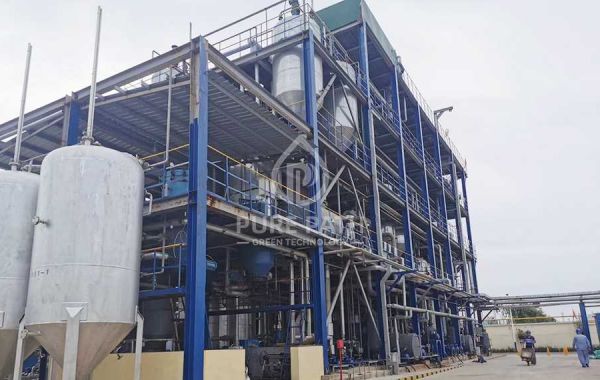This article delves into the critical significance of waste lube oil recycling, elucidating its environmental benefits, economic viability, and pivotal role in fostering a sustainable future.
Environmental Benefits:
Waste lube oil, if improperly disposed of, poses severe environmental threats, contaminating soil, water bodies, and air. The toxic compounds and heavy metals present in used oil can leach into the environment, endangering ecosystems, wildlife, and human health. However, through recycling, these environmental hazards can be mitigated. Recycling waste lube oil prevents pollution by reducing the need for incineration or landfilling, minimizing greenhouse gas emissions, and conserving precious natural resources. By transforming used oil into high-quality base oils, lubricants, and other products, recycling facilitates a closed-loop system that preserves resources and safeguards the environment for future generations.
Economic Viability:
Beyond its environmental benefits, waste lube oil recycling presents compelling economic advantages. While traditional methods of disposal, such as incineration or landfilling, incur significant costs and environmental liabilities, recycling offers a cost-effective and sustainable alternative. Through advanced recycling technologies, such as re-refining processes and solvent extraction, used oil can be transformed into valuable products with comparable quality to virgin oils. Moreover, the recycled products derived from waste lube oil possess a competitive edge in the market, offering cost savings and revenue opportunities for businesses. By harnessing the economic potential of waste lube oil recycling, industries can unlock new sources of revenue, enhance operational efficiency, and contribute to long-term profitability.
Fostering Sustainability:
At its core, waste lube oil recycling embodies the principles of sustainability, balancing environmental stewardship with economic prosperity. By diverting used oil from landfills and incinerators, recycling conserves valuable energy and raw materials, reducing the carbon footprint of industries and mitigating climate change. Furthermore, recycling promotes the circular economy paradigm, where resources are continuously reused, recycled, and regenerated, minimizing waste generation and maximizing resource efficiency. Through collaborative efforts between government agencies, industry stakeholders, and consumers, waste lube oil recycling can drive systemic change, ushering in a more sustainable and resilient future.
Conclusion:
In conclusion, waste lube oil recycling represents a crucial pathway towards environmental and economic sustainability. By preventing pollution, conserving resources, and fostering the circular economy, recycling waste lube oil offers multifaceted benefits for society, industry, and the planet. As we navigate the challenges of the 21st century, embracing waste lube oil recycling as a fundamental component of our waste management strategies is essential to building a greener, more prosperous future for generations to come.








